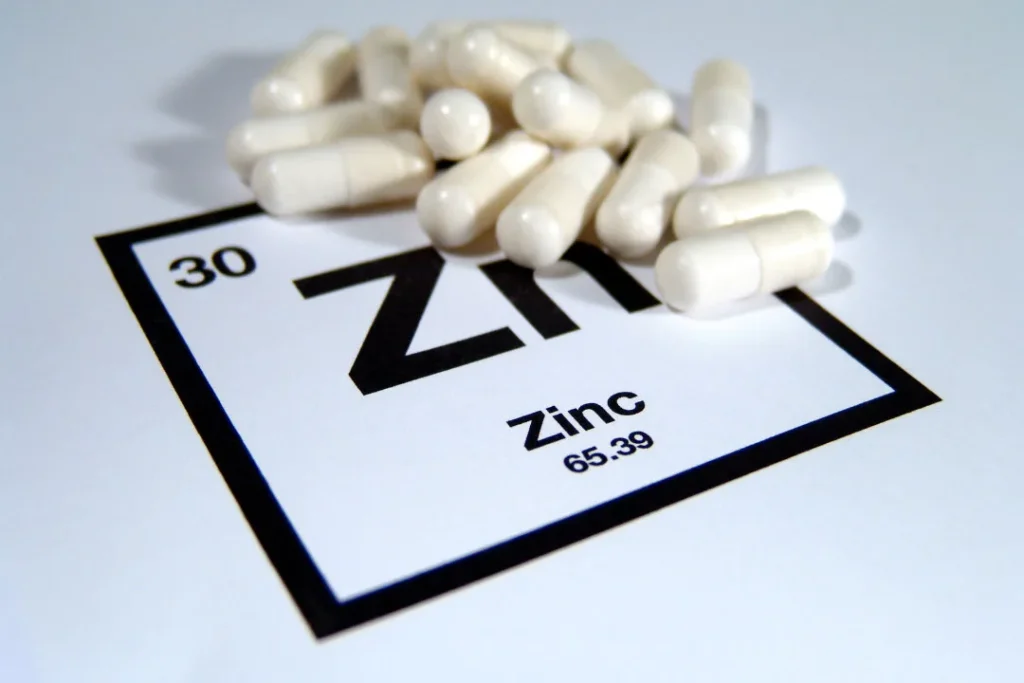Duckweed is a fast growing aquatic plant of the Lemnaceae family, and can usually be seen floating over still or slowly flowing bodies of water. Duckweed is proving to be a creative answer to the world’s nutritional problems because of its rich nutrient profile, quick pace of development, and significant protein content. This article seeks to present a thorough investigation of duckweed, detailing its characteristics, health advantages, recommended dose, potential side effects, drug interactions, and safe usage.
You May Also Like:
The Best Mushroom Supplements for Memory: 5 Top Brands Reviewed
Finding the Best Supplements for Brain Fog After COVID: 5 Top Brands Reviewed
Duckweed: Benefits, Dosage, Side Effects, Drug Interactions, and Other Important Information is an original (NootropicsPlanet) article.
Nature of Duckweed
Duckweeds are a genus of tiny, float-free aquatic plants that include the genera lemna, wolffia, and spirodela. Their basic morphology consists of rootlets and small green leaves, or fronds. Duckweed is an environmentally effective plant due to its quick reproduction rate and low water and sunshine requirements.
Chemically, duckweed is a veritable gold mine of nutrients. When measured in dry weight, it contains 25–45% more protein than the majority of other conventional crops. The amino acids lysine and methionine, which are sometimes scarce in other plant-based sources, are unusually abundant in duckweed. Duckweed also contains significant amounts of vitamins A, B, and C as well as vital minerals including potassium, magnesium, and zinc.

Health Benefits of Duckweed
Due to its rich nutritional composition, duckweed has many possible health advantages. It is crucial if you eat a plant-based diet since it contains high-quality plant-based protein, which makes it a great alternative protein source. The body’s ability to synthesize proteins is facilitated by the presence of necessary amino acids, which encourages the development and repairing of muscles.
Additionally, duckweed has a lot of dietary fibers, which are essential for maintaining bowel regularity and gut health. The fiber content in duckweed helps stabilize blood sugar levels and increases satiety, both of which support weight management.
Duckweed’s nutritional value is enhanced by the abundance of vitamins and minerals in it. B vitamins are necessary for the creation of energy and the operation of the neurological system. Vitamin A promotes eye health. Numerous physiological processes, including bone health (calcium), neuron and muscle function (potassium), and immunological function (zinc), can benefit from these minerals.

Chemistry of Duckweed
Duckweed’s biochemical composition is intriguing, showing a variety of advantageous components. Its protein concentration greatly exceeds that of conventional agricultural crops, making up 25–45% of its dry weight. Lysine and methionine, two important amino acids that are frequently deficient in proteins generated from plants, are all present in duckweed proteins.
The lipid composition of duckweed is also noteworthy, being predominately made up of heart-healthy polyunsaturated fatty acids like linoleic acid and alpha-linolenic acid. Duckweed’s nutritional and health advantages are due to the mix of easily digested and indigestible fibers found in its carbohydrate composition.
Additionally, duckweed is rich in several necessary micronutrients. In addition to essential minerals including calcium, iron, zinc, magnesium, and selenium, it contains vitamins A, C, and E as well as multiple B vitamins. Duckweed contains a variety of bioactive substances, including polyphenols and flavonoids, which are linked to anti-inflammatory, anti-oxidative, and antibacterial effects.

Physiological Properties of Duckweed
The harmonic interactions of duckweed’s nutritional components within the human body are what cause the health advantages connected with it.
The excellent digestibility and full amino acid properties of plant-based proteins help in muscle synthesis, tissue repair, and enzyme production. Due to their need, these amino acids can only be supplied through food, making duckweed an alluring source of plant-based protein.
Duckweed’s dietary fibers provide numerous health advantages. In the stomach, soluble fibers create a gel-like material that slows digestion and increases satiety, both of which can aid in weight management. They reduce blood sugar levels by delaying the absorption of glucose. Insoluble fibers, on the other hand, provide the stool more weight and promote bowel regularity.
The rich vitamin and mineral content of duckweed contributes to various physiological processes. For example, vitamin A promotes eyesight and immunological health, vitamin C serves as an antioxidant and promotes collagen production, and vitamin B vitamins are essential for brain and energy metabolism. Duckweed contains nutrients that support the health of bones (calcium), oxygen transport (iron), and enzymatic processes (zinc and magnesium).
Duckweed contains powerful antioxidants called polyphenols and flavonoids that work to reduce oxidative stress and neutralize damaging free radicals in the body, lowering the chances of developing chronic illnesses.

Optimal Dosage of Duckweed
Although there is no set dose for duckweed, it is often ingested in moderation in a variety of forms, including fresh, dried, powdered, and as a supplement. For instance, protein powders made from duckweed can be consumed in serving sizes of 20 to 30 grams, much like other plant-based protein powders. However, the intake should be customized based on your personal tolerance and nutritional needs.
Side Effects
Eating duckweed is typically regarded as harmless because it is a natural plant product. However, side effects are always a possibility with dietary supplements due to over-consumption or allergies. These could include bloating, intestinal distress, or allergic responses.
Potential Substance Interactions
As far as we know, duckweed doesn’t negatively interact with any particular drugs. Before using duckweed in your diet, if you are on medication or have underlying medical issues, you should still speak with your doctor.
Responsible and Best Uses of Duckweed
Duckweed can be safely utilized in a variety of foods and nutritional regimens and is available in fresh, dried, powdered, and other form. Fresh duckweed can be used as a garnish or as an addition to salads. Duckweed is a versatile ingredient that can be used in smoothies, soups, and baking dishes, whether it is dried or powdered. It can also be put into capsules and consumed as a dietary supplement.
Duckweed-based protein powders might be a great post-workout recovery supplement for athletes or others looking for plant-based protein sources. Given its high concentration of vital amino acids, this can aid in the recovery and development of muscles after exercise.
Duckweed:
Conclusion
A vegan or plant-based diet may be especially advantageous if you choose to use duckweed. It can offer essential nutrients including protein, vitamins, and minerals.
It is important to keep in mind that duckweed should only be taken as a supplement, and not as a replacement for a healthy, diverse diet. It is advised to speak with your healthcare professional before beginning any new supplement to be sure it is appropriate for your unique health requirements. If you are on a vegan diet and you are looking for a natural plant-based protein supplement, duck weed is highly recommended to add to your diet.
References:
- “The Duckweed Genome: Starch and Protein Biosynthesis and Its Regulation.” Retrieved from: https://www.ncbi.nlm.nih.gov/pmc/articles/PMC6356265/
- Special Issue “Duckweed: Research Meets Applications”link:https://www.mdpi.com/journal/plants/special_issues/duckweed
- Duckweeds are tiny free-floating vascular plants with worldwide distribution.link:https://www.sciencedirect.com/topics/earth-and-planetary-sciences/duckweed
Important Note: The information contained in this article is for general informational purposes only, and should not be construed as health or medical advice, nor is it intended to diagnose, prevent, treat, or cure any disease or health condition. Before embarking on any diet, fitness regimen, or program of nutritional supplementation, it is advisable to consult your healthcare professional in order to determine its safety and probable efficacy in terms of your individual state of health.
Regarding Nutritional Supplements Or Other Non-Prescription Health Products: If any nutritional supplements or other non-prescription health products are mentioned in the foregoing article, any claims or statements made about them have not been evaluated by the U.S. Food and Drug Administration, and such nutritional supplements or other health products are not intended to diagnose, treat, cure, or prevent any disease.


